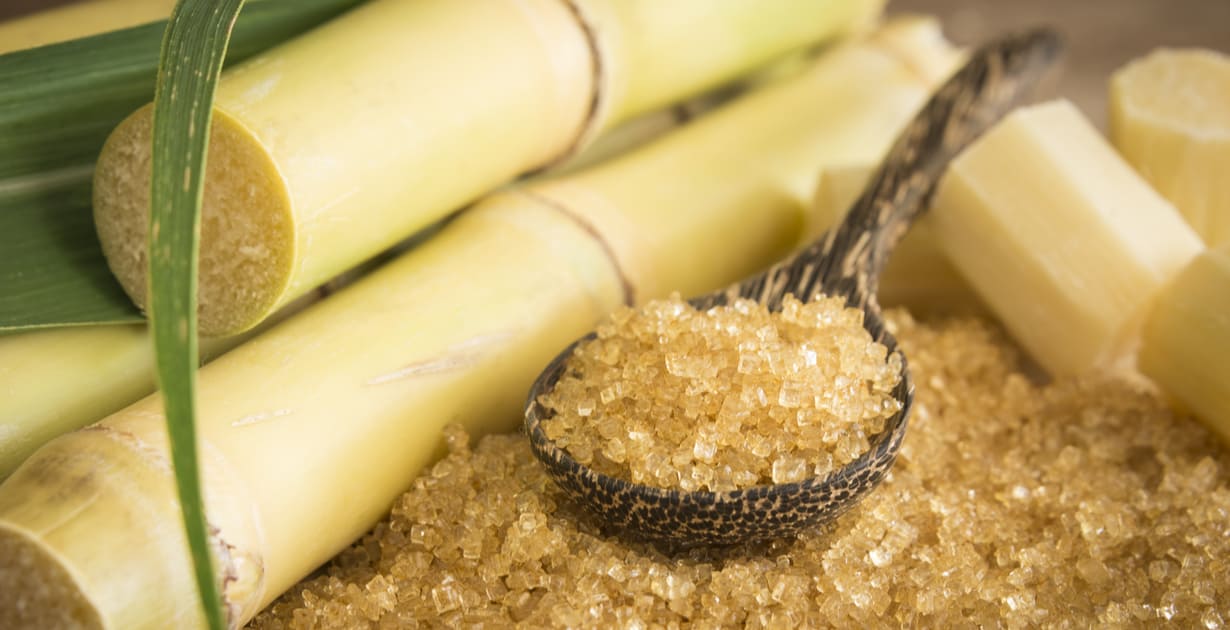Sugar and Cane: A Guide to Their Nutritional Benefits and Uses
Sugar and Cane: A Guide to Their Nutritional Benefits and Uses
Blog Article
Why Walking Cane Sugar Handling Chemicals Are Important for Modern Sugar Refining
The function of cane sugar handling chemicals in modern-day sugar refining can not be overstated, as they are essential to improving both the performance of removal and the general high quality of the last product. Representatives such as phosphoric acid and particular flocculants are utilized to get rid of pollutants, resulting in sugar that not only satisfies customer expectations however likewise adheres to market criteria.
Duty of Handling Chemicals
The efficacy of walking cane sugar handling hinges dramatically on the strategic application of handling chemicals. These chemicals play a crucial role in boosting the effectiveness and high quality of sugar extraction and refining. From the initial stages of juice extraction to the last purification steps, handling chemicals help with various essential procedures.
In the removal stage, chemicals such as phosphoric acid and calcium hydroxide are employed to enhance the clarification process, helping to get rid of contaminations and suspended solids from the cane juice. This not only improves the return but also makes certain the clearness of the end product. Furthermore, representatives like flocculants help in the fast settling of impurities, therefore enhancing the overall procedure.
As the processing advancements, chemicals are used in decolorization and crystallization phases. Activated carbon and ion exchange materials serve to eliminate color and odor, guaranteeing that the polished sugar satisfies customer top quality criteria. Ultimately, the duty of handling chemicals expands past operational performance; they significantly impact the sensory attributes of the end product, adding to market competition. Thus, the meticulous choice and application of these chemicals are essential for accomplishing optimum results in cane sugar handling.
Trick Kinds Of Chemicals
Walking stick sugar handling counts on a range of crucial chemicals that help with each phase of manufacturing. These chemicals play important functions in clarifying, bleaching, and detoxifying the sugar removed from walking cane.
One key classification of chemicals consists of flocculants, such as polyacrylamide, which help in the clarification procedure by promoting the aggregation and settling of pollutants. Additionally, calcium hydroxide is usually employed to reduce the effects of acidity and aid in the elimination of non-sugar elements.
Whitening agents, such as triggered carbon and sulfur dioxide, are utilized to decolorize the syrup, leading to a clearer last product. These chemicals assist remove color compounds that may impact the sugar's look and bankability.
In addition, phosphoric acid serves as a pH regulatory authority during the handling phases, making sure optimum problems for the enzymatic activities involved in sugar removal and filtration.
Various other important agents include edta (ethylenediaminetetraacetic acid), which chelates metal ions that might catalyze undesirable reactions, and sodium hydroxide, which aids in pH control throughout the refining process. Jointly, these chemicals enhance efficiency and ensure a top notch walking cane sugar item.
Benefits for Sugar High Quality
Usually overlooked, the use of details processing chemicals significantly boosts the total quality of cane sugar. These chemicals play a critical duty in refining processes, guaranteeing that the final product fulfills stringent market standards for purity and taste.

In addition, refining chemicals assist in attaining a constant granulation and texture, which are critical for customer approval. By managing the formation procedure, these chemicals make certain that the sugar crystals develop evenly, leading to a more appealing item that dissolves well in numerous applications.
Additionally, using these chemicals can enhance the service life of cane sugar by minimizing moisture absorption and microbial growth. On the whole, the calculated application of processing chemicals is necessary for delivering high-quality walking cane sugar that satisfies customer assumptions and market needs.
Ecological Effect Factors To Consider

Additionally, the energy-intensive nature of sugar refining, compounded by chemical use, often results in enhanced carbon exhausts. This adds to climate change and raises concerns regarding the sustainability of existing refining techniques. Additionally, the sourcing of these chemicals might involve techniques that threaten biodiversity, such as monoculture farming, which lowers the strength of farming ecological communities.

To minimize these influences, sugar refiners are significantly discovering sustainable choices and adopting best techniques that minimize chemical usage. Applying strenuous environmental monitoring systems can help guarantee that the refining process straightens with environmental requirements and advertises biodiversity. Inevitably, a well balanced technique that prioritizes both sugar quality and ecological stewardship is crucial for the lasting stability of the sugar sector.
Future Trends in Refining
As the sugar industry grapples with the ecological obstacles associated with typical refining techniques, cutting-edge techniques are arising to enhance both effectiveness and sustainability. One considerable fad is the adoption of eco-friendly chemistry principles, which focus on the usage of non-toxic, biodegradable handling chemicals. This shift not only decreases ecological effect yet likewise addresses consumer demand for cleaner production methods.
One more promising growth is the application of sophisticated filtering modern technologies, such as membrane layer splitting up and adsorption processes. These methods boost the quality and top quality of the sugar while visite site reducing the quantity of wastewater created during refining. Additionally, the assimilation of electronic modern technologies, consisting of IoT and AI, is changing operational effectiveness by enabling real-time tracking and anticipating upkeep, thus decreasing resource waste.
Additionally, using spin-offs from sugar refining, such as bagasse and molasses, is gaining traction. These materials can be converted into biofuels or value-added products, contributing to a circular economy within the market. Jointly, these patterns signify a change towards even more sustainable techniques that not only improve functional efficiency yet also straighten with international sustainability goals, making certain the future practicality of sugar refining.
Final Thought
Cane sugar processing chemicals are crucial in modern-day sugar refining, significantly boosting the efficiency and quality of sugar extraction. The strategic use of these chemicals not only improves the purity and flavor of the end product but additionally ensures regular crystallization and appearance. As the sector increasingly focuses on sustainability, the fostering of environmentally-friendly handling representatives is most likely to shape future trends in refining, ultimately causing greater quality items and expanded life span for consumers.

Eventually, a well balanced strategy that focuses on both sugar top quality and ecological stewardship is necessary for the long-term practicality of the sugar industry.
Walking cane sugar processing chemicals are necessary in modern sugar refining, significantly enhancing the efficiency and high quality of sugar extraction.
Report this page